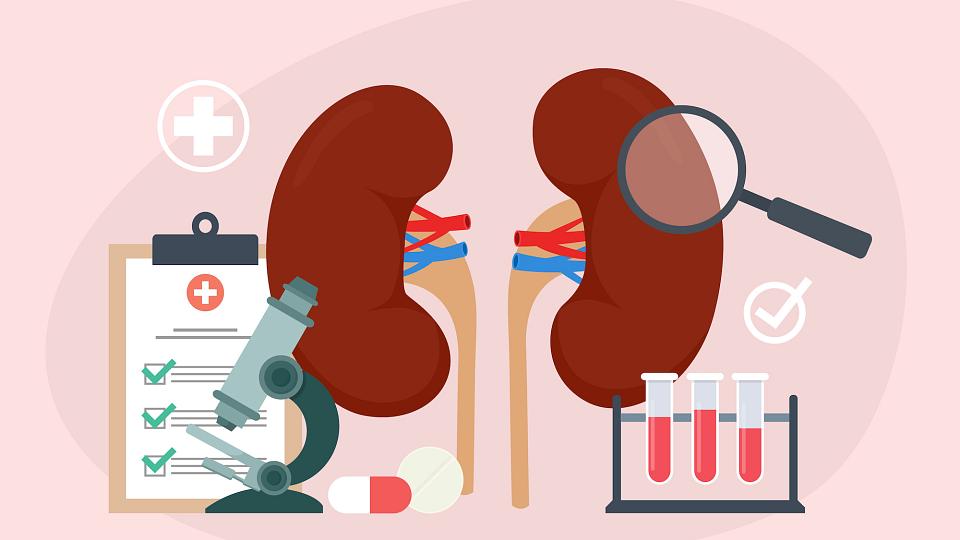
Kidney Transplant
Living Kidney Donation, Paired Donation, & Renal Autotransplant
Contact Us
Phone: 801-581-2634
Toll-free: 800-824-2073

A kidney transplant places a donor kidney into your body during surgery. A donor organ is a healthy organ that you get from another person. A donor kidney may come from a living or a deceased person. Surgeons will sometimes move a painful kidney to another location in your body.
At University of Utah Health, we understand that every patient has unique needs. That’s why we offer multiple types of kidney transplantation:
- Deceased donor kidney transplant
- Living kidney donation
- Paired donation
- Renal autotransplant
New Referral Process
To make the referral process easier for you, we have set up an online medical history questionnaire. We need to fully understand your medical history before we can start your evaluation as a candidate for kidney transplant.
Completing the questionnaire will take you about 45 minutes. With this information, we can get you the most efficient care because our transplant team will fully understand your needs.
We also offer virtual health visits.
Why Choose U of U Health’s Kidney Transplant Program?
U of U Health is the top living donor transplant center in Utah, with transplant rates among the top 20 percent nationwide. We can offer transplants to nearly every qualifying patient through our paired exchange program. Paired exchange helps us match the most compatible donors and recipients, even if they don’t know each other. We use new donor matching techniques that are more extensive than other centers.
Our kidney transplant team has cared for patients since 1965. We are a Medicare-approved center, performing around 180 kidney transplants each year. Our survival rates are above national averages. We take a multidisciplinary approach to your care, offering you access to every specialist you need:
-
Transplant coordinators
-
Social workers
-
Dietitians
-
Pharmacists
-
Financial coordinators
180 KIDNEY TRANSPLANTS
performed each year
FASTER DONOR KIDNEY RATES
Patients receive deceased donor kidney transplants twice as fast as the national average.
UTAH'S #1
living donor transplant center
Find a Kidney Transplant Provider
Irene Zilbershteyn, APRN, FNP-C
Kidney Transplant
Kidney Transplant Requirements
You may qualify for a kidney transplant if you have kidney failure. Kidney failure is when your kidneys lose their ability to function normally. We accept referrals for anyone whose kidney function is less than 25% of typical function.
What Disqualifies You From Getting a Kidney Transplant?
Several factors may affect whether you qualify for a kidney transplant:
-
You are over the age of 80.
-
You have active cancer or serious infections.
Your transplant team will review the qualifications for a kidney transplant with you.
Kidney Transplant Waiting List
You will get a letter from our team when you’ve been approved for the kidney transplant waiting list. Your wait time for a transplant depends on a few factors:
-
Length of time on dialysis (a treatment for kidney failure)
-
Length of time on the waiting list
-
Number of donor matches you have
-
Test results
Your transplant team will discuss these factors with you so you know how long it might take to get a donor.
We will test your blood each month while you’re on the waitlist. Over time, your body can develop proteins (antibodies) that limit your donor matches. These blood draws check your antibodies to make sure we match you with the right donor.
You will have a visit with your transplant team at least once a year while on the waitlist. We will take additional blood draws and assess your health during this visit.
Kidney Transplant Success Rate
All transplant programs report their outcomes to ensure they are on par with national guidelines. Our kidney transplant survival rates meet and exceed these national averages.
How Long Does a Kidney Transplant Last?
On average, transplanted kidneys last 10-25 years. However, that number varies. You will continue to see your transplant nephrologist regularly to monitor your kidney function after a transplant.
Kidney Transplant Cost
Medicare and many other insurance plans cover kidney transplants. Our financial coordinator will meet with you before your kidney transplant. They will review your insurance coverage and costs so you know what to expect.
Health Insurance
Health insurance coverage, contracts, and payment may be subject to changes beyond the control of University of Utah Health. The University of Utah Transplant Department will contact your insurance and verify that your insurance is contracted with our facility and providers.
If your insurance is not contracted, we will attempt a single-case-agreement for transplant services to be performed at the University of Utah. Ultimately the patient is responsible for payment related to all services.
Meet Our Patients & Donors
Hear From Our Specialists
For More Information Call 801-581‑2634 or
Self Refer or Refer a Patient






